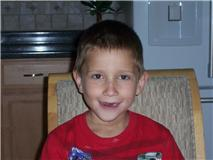
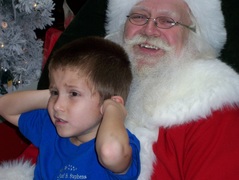
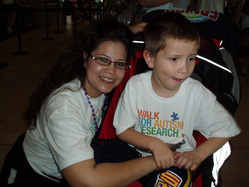
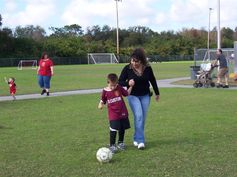
Doesn’t make eye contact.
Doesn’t smile back at you.
Doesn’t respond to his/her name.
Doesn’t follow you or objects as they move.
Doesn’t baby talk or mimic sounds.
Doesn’t respond when name is called.
Behaves as if he or she cannot hear.
Doesn’t imitate movements or facial expressions.
Doesn’t play with traditional baby toys.
Cries for no apparent reason.
Engages in repetitive play (running back and forth, spinning,
Rocking back and forth
Cries when held or touched.
Doesn’t initiate or respond to cuddling.
Doesn’t reach out to be picked up.
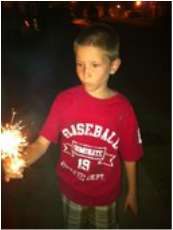
The evaluation would take place at All Children’s Hospital. It consisted of a few hours of pure observation. There was a team of specialists observing Richie from behind a glass window, watching while the behavioral specialist tried to engage Richie with different games and activities.
Although I had time to take in the diagnosis, I was still clinging to hope, still praying it wouldn't be so. I wanted to be wrong. When the observation time was over, Dr. Pavan invited Richie’s father and I to join the team in a room nearby. A nurse was playing with Richie, keeping him distracted while we spoke. Dr. Pavan looked at me and said, “Your suspicions were right, mom. Your son has autism.” I was quiet. I knew what she was going to say, but I remember feeling unusually calm. I stood up and made eye contact with every specialist in the room (speech, occupational, behavioral, psychologist, developmental specialist, and Dr. Pavan), and said:
“I will exhaust every resource you have that can help my son.” I remember there being an awkward thirty seconds of silence, broken by Dr. Pavan when she smiled and said, “Well, that’s good.”
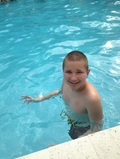
She handed me a thin packet of information. In it contained a list of therapists for me to interview and recruit as part of the Early Intervention team. There was also a list of national, state and local agencies. I had no idea what many of them did and how they could help Richie, I was overwhelmed. That night, I cried myself to sleep.
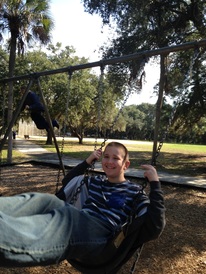
I knew that although it was normal and good for me to mourn this news - I couldn’t mourn for too long. I needed to get it together, I needed to be strong and get busy. In fact, that was my creed in 2004. I wrote “Get busy, Christine,” on sticky notes and put it on the bathroom mirror, my desk at work, and on my computer desk at home. I needed to read, research, and work with Richie as much as I could. I learned plenty, but thinking back now, I might have paced myself better. When your child gets a diagnosis of Autism, as a parent, you can’t help but feel you like you’re trying to beat the clock. All of a sudden there’s an hour glass of sand running out, and you have to work quickly. You keep hearing things like, “Your child needs forty hours of ABA therapy a week,” or “By six years old, if your child isn’t talking yet and if you haven’t drastically improved your child’s behavior and learning abilities, odds are they will never change.” I did what any mother would do. But the truth is I made myself sick instead. I ended up dealing with bouts of severe anxiety due to high levels of stress and lack of sleep (I was working full-time, working with Richie on discrete trial tasks for two hours a night, two hours computer research, reading the several books I bought (my first book was “Overcoming Autism”), and of course cooking and house cleaning in-between. I had no time for anything else. Thinking back on this now, I needed to take it easy. By the way, there have been many cases where children with autism learn to speak at age twelve, sixteen, or even older. There is no deadline. Each child learns at their own pace, and will eventually learn to communicate with others (whether they use pictures, gestures, or verbal communication), they will find their voice.
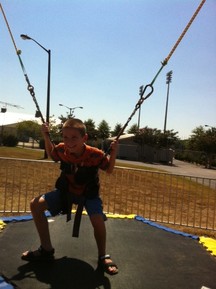
- First, it may feel like all dreams and hopes are lost. I promise you, they’re not. Think different. You will celebrate triumphs, achievements, and many successes throughout your child’s life. Please remember that no one can know for certain what your child will and will not do. Don’t allow anyone to strip you of your hope and faith.
- Nothing anyone says will be the right thing at first. You will despise everything everyone says, even if they mean well. I remember when someone said they had a feeling something was off but didn’t say anything, I was angry that they didn’t say anything. If someone said they were sorry about the diagnosis, I perceived it as pity and was offended. You are going through a roller-coaster of emotions and it is perfectly normal. Try to go easy on the folks who are trying to be supportive. Odds are they’re learning right alongside you and have no idea what to say to try to make you feel better.
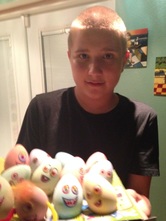
- This is important: find support in other parents. Being able to ask veteran parents questions about their experiences is very therapeutic and often times reassuring. Yahoo.com has many online support groups (many of them also offer in-person meetings). I would create a new email account exclusively for this. Many groups are very active, and their responses will flood your email account. You can search yahoo groups by county and disability. I’m a member of five autism support groups and I get tons of information from parents, family members, self-advocates, educators, doctors, therapists, you name it.

Parent Training and Information Centers (PTI): Each state has at least one Parent Training and Information Center (Florida has three). These organizations are funded specifically to provide parents of children with disabilities information, resources and training on the services (free of cost) their child receives. You will need training on the following topics, among many others:
IDEA (Individuals with Disabilities Education Act) and Special Education Processes
IEP (Individualized Education Plan): This is a very lengthy and detailed document that includes information on how, where, and what your child is taught in school. It also includes information on therapy, supports, accommodations, test methods, and other supplemental services needed.
FAPE: Your child has a right to a Free and Appropriate Public Education.
Section 504 – Your child’s right to access to, and participate in federally funded programs.
Inclusion – Your child has a right to learn, play and participate in activities alongside his/her peers.
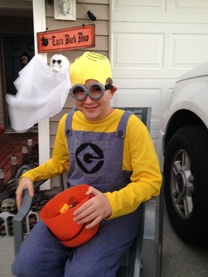
Autism Society of America: Improving the lives of all people affected by autism.
Autism Speaks: The First 100 Days Kit is a great resource.
Centers for Independent Living: Provides support and advocacy for people with disabilities.
APBS (Association for Positive Behavior Supports): Increase quality of life and decrease challenging behaviors.
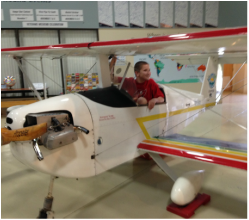
APD (Agency for Persons with Disabilities): State agency program that provides support and services to people with developmental disabilities and their families.
FDLRS (Florida Diagnostic Learning Resource) : Provides diagnostic, instructional, technical assistance and support to parents, families, educators, and school districts.
Family Care Council: This agency makes your legislative voice known.
Vocational Rehabilitation: Assists individuals with disabilities find and maintain employment.
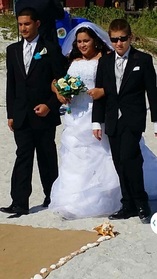
Florida’s Multi-Tiered System of Supports – Learn about RtI (Response to Intervention) and MTSS (Multi-tiered System of Supports) strategies used to maximize student achievement.
FLAPBS (Florida Network Association of Positive Behavior Supports)- Provides support to individuals with disabilities experiencing challenging behaviors across all settings in order to improve their quality of life.
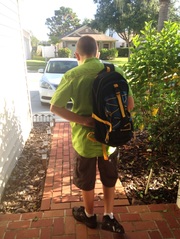
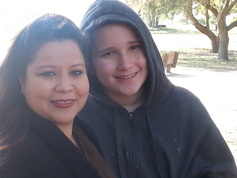
We get through our issues one day at a time, and so will you my friend.
© 2015 Sensory Friends
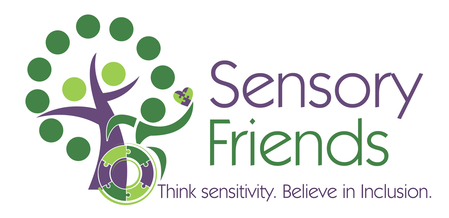
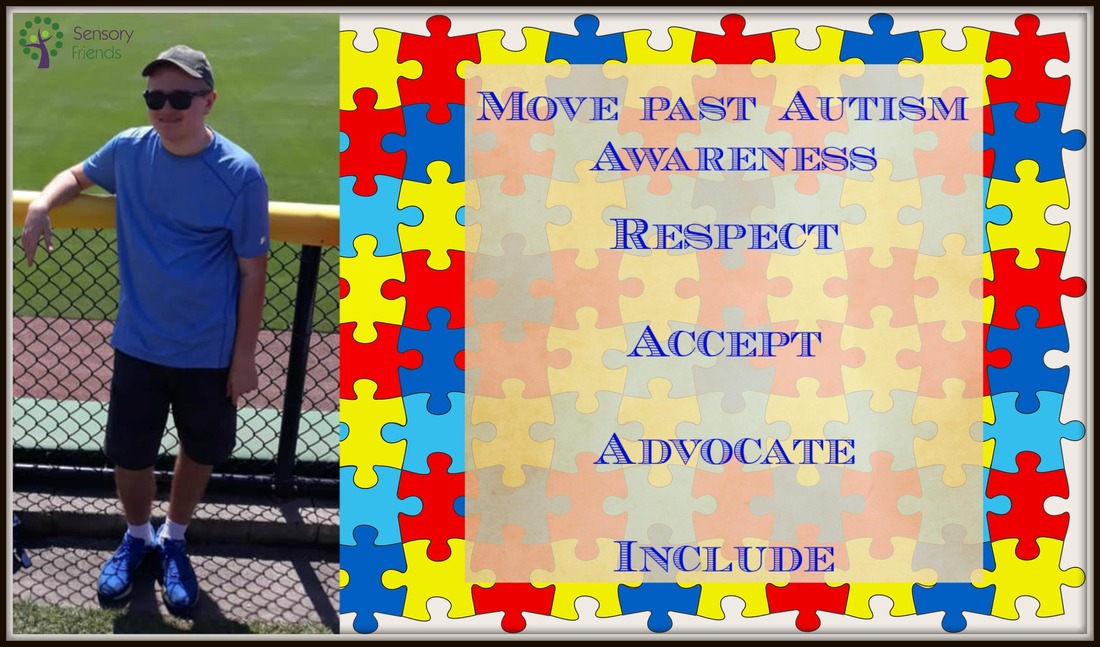
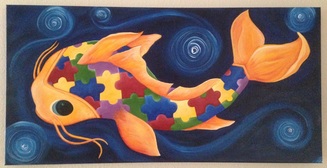
 RSS Feed
RSS Feed